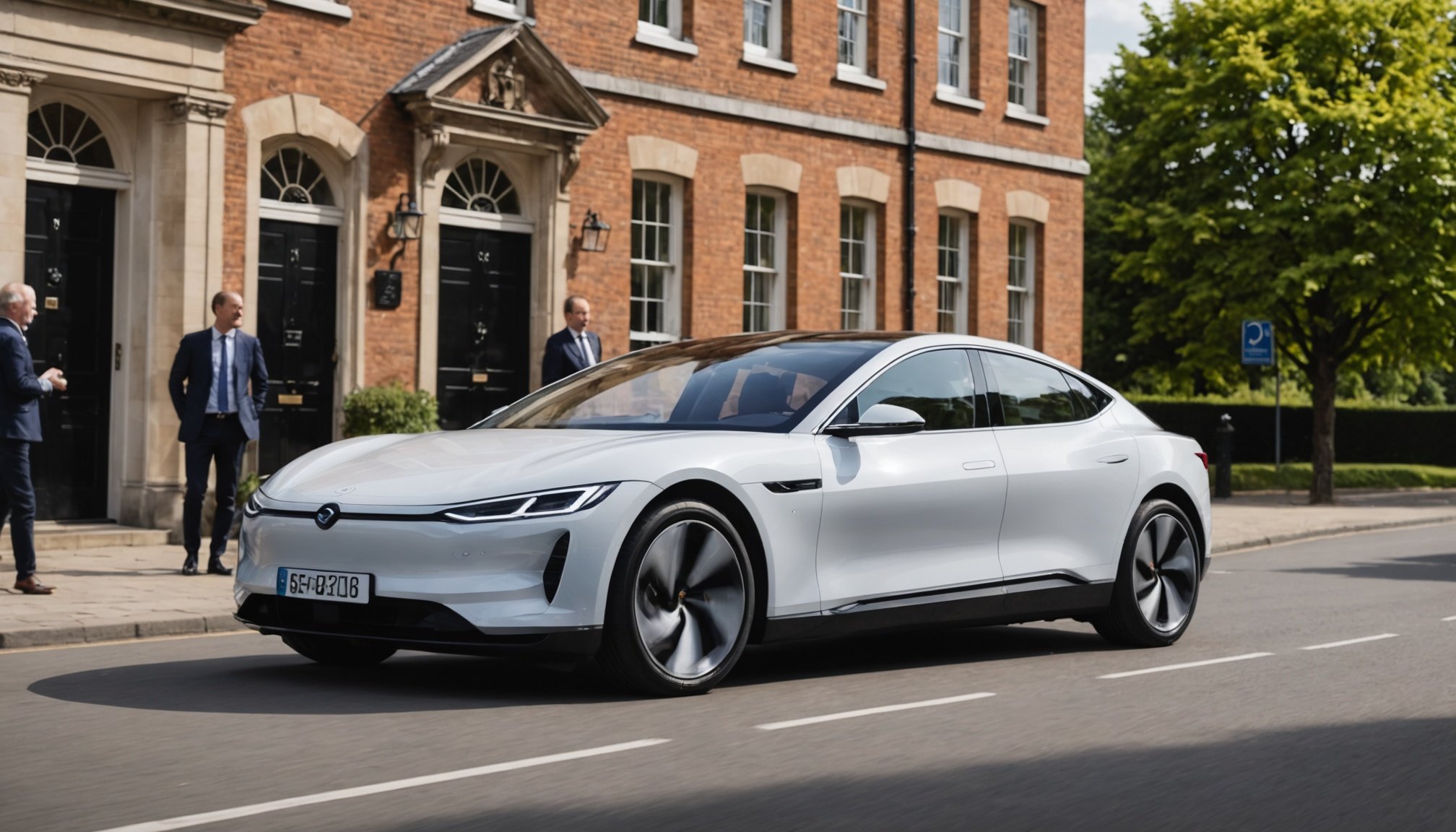Overview of Electric Cars Eligible for UK Government Grants
In the realm of electric cars 2023, understanding what makes a vehicle qualify for UK government grants is pivotal. Generally, a car must be low-emission, adhering to set CO2 standards, and must meet stringent safety specifications. Moreover, cars need to fall under a certain price cap; typically, the grant targets affordable options to ensure broader accessibility for consumers.
The UK government grants are designed to make electric vehicle incentives attractive and feasible. These incentives usually take the form of purchase price reductions, making it easier for consumers to transition to eco-friendly cars. Many grants cover up to £3,000 for eligible vehicles, significantly reducing the upfront cost.
Also to read : Navigating the 2023 Appeal Process for Denied UK Student Visa Applications: Essential Steps to Take
These financial incentives play a crucial role in encouraging consumers to make the switch to electric cars. Not only do they lower the initial financial barrier, but they also support the UK’s broader efforts to meet stringent environmental targets. Electric cars are essential to reducing the nation’s carbon footprint, curbing pollution, and promoting a sustainable future. By transitioning to electric vehicles, the UK aims to pave the way for a greener tomorrow, making these incentives a key component in driving environmental change.
Top Electric Cars of 2023
Examining the most popular electric cars until now is an exciting endeavour, especially in a year dense with technological advancements and ecological considerations.
Also to discover : Navigating the Changes to the UK State Pension for EU-Based Expats: What You Need to Know
Model 1: Tesla Model S
The Tesla Model S is often pointed out in 2023 electric vehicle reviews as a standout for its cutting-edge technology. This sleek masterpiece comes loaded with impressive features such as an extraordinary range of up to 405 miles, dual-motor all-wheel drive, and lightning-fast acceleration from 0-60 mph in just 3.1 seconds. Its spacious interior and minimalist design provide a luxurious driving experience. Additionally, the Model S supports over-the-air updates, keeping your vehicle up-to-date with the latest software enhancements without any hassle.
In terms of financial incentives, the Tesla Model S is eligible for various grants and tax credits, reducing the overall ownership cost significantly. Prospective owners can benefit from federal tax credits and state-specific rebates, adding a layer of financial attraction to this technological marvel. Exploring the range of available grants can unlock tremendous savings, making this popular electric car both an environmentally-friendly and financially savvy choice.
When evaluating the best electric cars of 2023, the Tesla Model S consistently shines due to its exceptional blend of performance, innovation, and potential cost savings.
Eligibility Criteria for Government Grants
Navigating the grant eligibility for government funding can seem daunting, but understanding the foundational requirements can simplify the process. First and foremost, personal eligibility criteria often include residency status; typically, applicants must be permanent residents or citizens to qualify. Additionally, an individual’s income level might influence eligibility, as some grants target specific income brackets to promote equity.
When it comes to electric car requirements, the vehicle must meet specific standards to be eligible for government grants. These often include the type of vehicle – for example, whether it’s classified as hybrid or fully electric. Furthermore, there’s usually a minimum battery capacity or range that the vehicle must satisfy to qualify. Emission standards also play a crucial role, as grants are often aimed at promoting environmentally friendly options. Vehicles should have low or zero emissions to align with the program’s goals.
The application process for obtaining grants involves several steps. Typically, it requires the gathering of essential documents, such as proof of residency and income details, alongside specifications of the vehicle. Submissions can often be made online, with guidance provided to ensure a smooth, stress-free experience for all applicants.
Financial Analysis of Electric Car Ownership
Transitioning to electric vehicle ownership involves a comprehensive financial review, prominently featuring a savings analysis. Initially, electric cars may present higher upfront costs, often leading prospective buyers to hesitate. However, the long-term savings are where these investments truly shine. This begins with reduced fuel expenditures; electric vehicles circumvent the fluctuations of petrol and diesel prices by operating on electricity. Over time, this can culminate in substantial financial savings.
Moreover, electric vehicles typically incur lower maintenance costs. Without a traditional combustion engine, they evade the need for frequent oil changes and have fewer moving parts vulnerable to wear and tear. This simplicity not only enhances financial benefits but also contributes to vehicle longevity.
Another facet enhancing the affordability of electric car ownership is the provision of government grants. Various incentives are in place to reduce the initial financial burden, ranging from tax credits to rebates. These can significantly diminish the purchasing price, making electric vehicles a more enticing option.
Estimating the total savings over an electric vehicle’s lifespan involves considering these factors collectively. The convergence of reduced operational expenses and governmental support renders electric vehicles a financially sound choice for the informed buyer.
Insights into Environmental Benefits
Electric vehicles (EVs) are gaining popularity due to their positive environmental impact. One of the significant advantages is the reduction of carbon emissions when compared to traditional petrol or diesel vehicles. EVs operate on electricity, which often results in fewer greenhouse gases. By supporting renewable energy, EV users help to lower the total emissions associated with transportation.
The movement towards EVs aligns with global sustainability initiatives. These vehicles contribute to improving air quality and reducing pollution, which is crucial for both local and global environments. As more individuals choose electric over conventional vehicles, this shift aids significantly in combatting climate change.
Investing in EVs reflects a commitment towards a more sustainable future. They offer an effective way to decrease dependence on fossil fuels. Additionally, many governments provide incentives for EV adoption, further encouraging their use and boosting sustainability.
By choosing EVs, consumers can support renewable energy sources. This includes wind, solar, or hydroelectric power, further enhancing the environmental benefits. Knowing these electric vehicle advantages, individuals can make informed decisions that positively impact the planet.
In conclusion, electric vehicles present a comprehensive solution for reducing the environmental impact, supporting sustainability, and fostering global ecological efforts.
Helpful Links and Resources
When considering an electric vehicle purchase, tapping into invaluable government resources can be pivotal. Official websites provide detailed information on grant application processes, helping you access financial incentives effortlessly. It’s essential to explore these resources to make the most of available benefits.
For a deeper understanding of electric vehicle networks, turn to platforms offering comprehensive comparisons and reviews. They can be instrumental in highlighting differences between models and helping you choose the right vehicle for your lifestyle. These insights aid in identifying which cars offer the best range, efficiency, and cost-effectiveness.
Additionally, for prospective buyers eager to experience driving an electric vehicle firsthand, arranging test drives is crucial. Local dealerships can facilitate this process, offering opportunities to evaluate different models. Dealerships often host events featuring new releases and promotions, providing firsthand insight into the latest technologies.
Remember, the more informed you are about available resources and support systems, the better decisions you can make towards purchasing an electric vehicle. Building a thorough understanding of the market will undoubtedly smooth your journey into eco-friendly driving.











